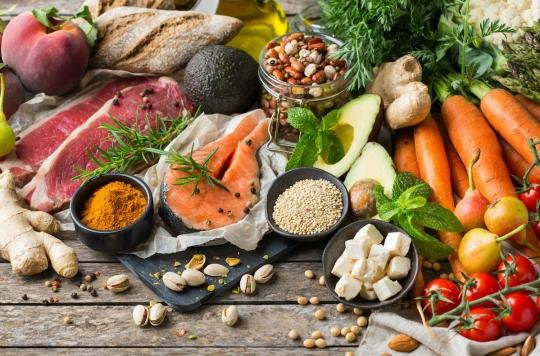Sugary, processed, refined foods are more likely to cause inflammation, which can lead to heart disease and strokes.

- Consuming the most pro-inflammatory diet increases the risk of developing heart disease by 46% and the risk of developing a stroke by 28%.
- The Mediterranean diet, fruits and vegetables, whole foods, and healthier proteins reduce inflammation.
Our diet should not be taken lightly. It influences our health on many levels and a new study has added a new argument for taking care of your plate. American Harvard researchers suggest that a diet that causes increased inflammation in the body is associated with an increased risk of cardiovascular disease and stroke. They presented their work in the November edition of Journal of the American College of Cardiology (JACC) of the month of November.
46% increased risk of developing heart disease, 28% of having a stroke
Researchers have found that an inflammatory diet is linked to an increased risk of cardiovascular events. “Inflammatory potential is significantly associated with a higher incidence of cardiovascular disease, compared to the 20% of the study population consuming the most anti-inflammatory dietnoted Dr. Jun Li, a researcher in the Department of Nutrition at Harvard University and lead author of the study. The 20% of the study population consuming the most pro-inflammatory diet are 46% more likely to develop heart disease and 28% more likely to develop stroke.”
The researchers looked at data from a study analyzing more than 210,000 people since 1986, or 32 years of follow-up. Nevertheless, despite the length and large panel observed, further research may help validate the relationship between certain foods and inflammation. “Our study includes only nurses and healthcare professionals, and our study population was predominantly white, so it is important to expand and replicate our findings in other populations.relativized the researcher. We perform a similar analysis in other cohorts with higher proportions of African American and Hispanic participants.”
What should be avoided?
Which foods to eat and which ones to avoid? Previous studies have shown that following a more plant-based diet, such as the Mediterranean diet, leads to a decrease in inflammatory risk over time, the researchers point out. Eating a diet rich in fruits and vegetables, with whole grains and healthy proteins, is better for your health than eating refined and processed foods. “It’s really no surprise that plant-based foods that are predominantly whole, low in fat and known to be anti-inflammatory continue to be the best wayreacted Dr. Andrew Freeman, cardiologist and director of cardiovascular prevention and well-being at National Jewish Health in Denver, to the American health media Healthline. It’s also not surprising that foods like sugary drinks, meats, cheeses, fatty foods, etc. are associated with worse outcomes.”
Foods to avoid include sugary drinks, processed meats and refined grains. “Regarding this study, I would say that it is best to reduce the consumption of refined grains, especially fried cereals [ainsi que] red, processed and organ meat, and sugary drinkscontinues Jun Li. It would be impossible to say never to eat these foods, but try to reduce the consumption of these foods and replace them with whole grains, plant-based or other healthy sources of protein, such as fish. Also increase your intake of dark green and yellow leafy fruits and vegetables..”
.















